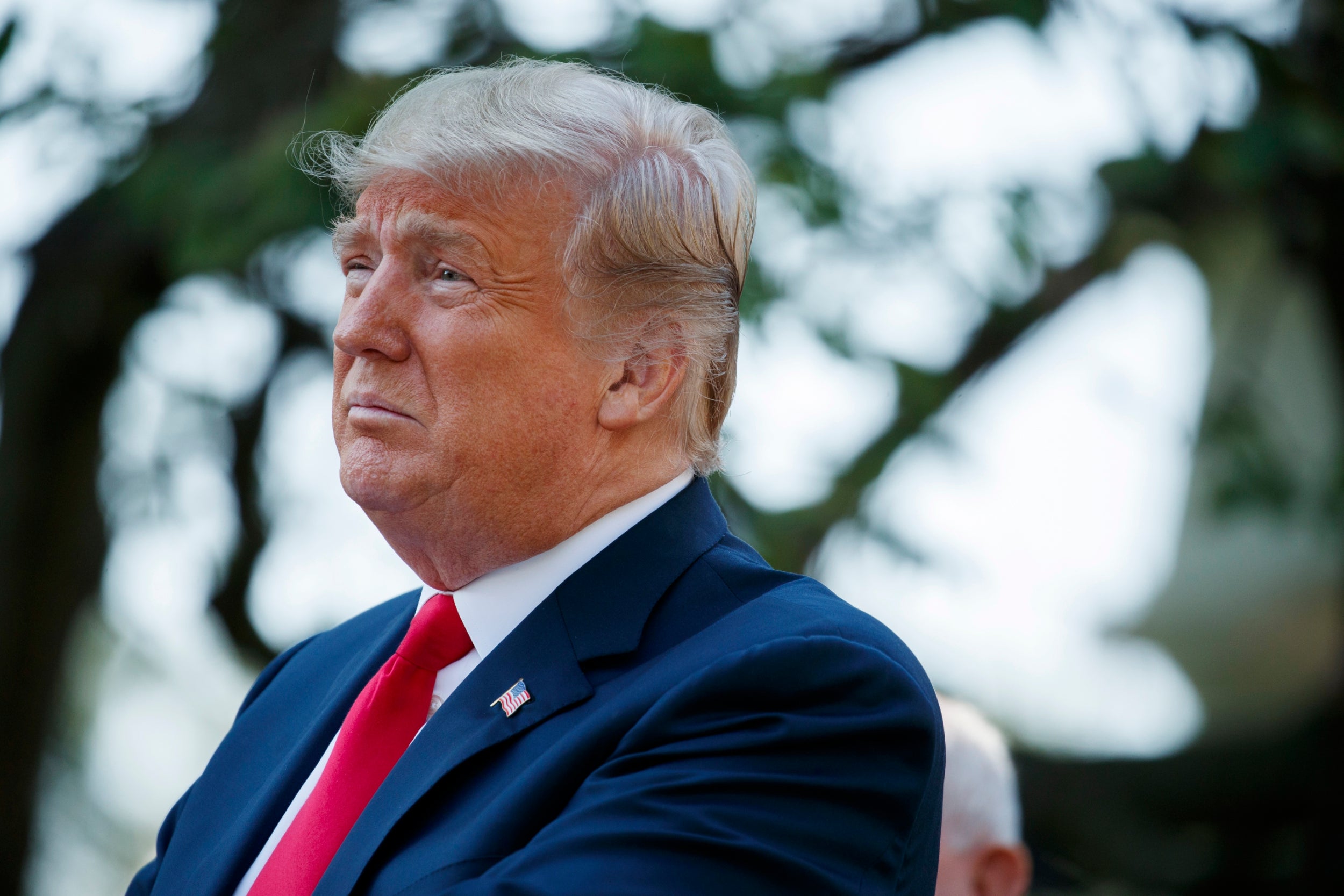US must lift Iran sanctions which affect humanitarian aid, UN court orders
Tough sanctions by President Donald Trump were challenged by Iran at the International Court of Justice, but whether he abides with the legally binding order to lift them remains to be seen

Your support helps us to tell the story
From reproductive rights to climate change to Big Tech, The Independent is on the ground when the story is developing. Whether it's investigating the financials of Elon Musk's pro-Trump PAC or producing our latest documentary, 'The A Word', which shines a light on the American women fighting for reproductive rights, we know how important it is to parse out the facts from the messaging.
At such a critical moment in US history, we need reporters on the ground. Your donation allows us to keep sending journalists to speak to both sides of the story.
The Independent is trusted by Americans across the entire political spectrum. And unlike many other quality news outlets, we choose not to lock Americans out of our reporting and analysis with paywalls. We believe quality journalism should be available to everyone, paid for by those who can afford it.
Your support makes all the difference.The United Nations‘ highest court has ordered the United States to lift sanctions on Iran that affect imports of humanitarian goods and products and services linked to the safety of civil aviation.
The ruling by the International Court of Justice is legally binding but it remains to be seen if the administration of President Donald Trump will comply.
Mr Trump moved to restore tough US sanctions in May after withdrawing from Tehran’s nuclear accord with world powers.
Iran challenged the sanctions in a case filed in July at the International Court of Justice in the Hague in the Netherlands.
In a preliminary ruling, the court said Washington must “remove, by means of its choosing, any impediments arising from” the reimposition of sanctions to the export to Iran of medicine and medical devices, food and agricultural commodities and spare parts and equipment necessary to ensure the safety of civil aviation.
While imposing the so-called provisional measures, the court’s president Abdulqawi Ahmed Yusuf stressed that the ruling does not prejudge the ultimate outcome of the case or establish that the court has jurisdiction.
Iranian state television trumpeted the court’s decision in a scrolling graphic at the bottom of TV screens: “The victory of Tehran over Washington by the Hague Court.”
The US is expected to challenge the court’s jurisdiction in a future hearing.
At hearings in August, Tehran sought the suspension of the sanctions while the case challenging their legality is being heard – a process that can take years.
US lawyers responded that the sanctions are a legal and justified national security measure that cannot be challenged by Tehran at the world court.
In its decision, the court said the US sanctions “have the potential to endanger civil aviation safety” in Iran and that sanctions limiting sales of goods required for humanitarian needs such as food, medicines and medical devices “may have a serious detrimental impact on the health and lives of individuals on the territory of Iran”.
The court said the Trump administration must “ensure that licences and necessary authorisations are granted” and payments not restricted if they are linked to the humanitarian and aviation goods.
It also told both the United States and Iran to “refrain from any action which might aggravate or extend the dispute”.
Iran alleges that the sanctions breach a 1955 bilateral agreement known as the Treaty of Amity that regulates and promotes economic and consular ties between the two countries.
The treaty was signed when the US and Iran were still allies following the 1953 revolution – fomented by Britain and the US – that ultimately cemented the rule of Shah Mohammad Reza Pahlavi.
Diplomatic relations were severed following the 1979 Islamic Revolution in Iran and takeover of the US embassy and ensuing hostage crisis.
However, the treaty remains in force.
Wednesday’s ruling could set up another clash between the Trump administration and a Hague-based court.
Last month, Mr Trump’s national security adviser John Bolton denounced the International Criminal Court (ICC) – a separate and unrelated institution based just a few miles away from the International Court of Justice (ICJ).
The ICC prosecutes people accused of war atrocities while the ICJ settles disputes between nations.
Mr Bolton said last month that “for all intents and purposes, the ICC is already dead to us”.
Associated Press
Join our commenting forum
Join thought-provoking conversations, follow other Independent readers and see their replies
Comments